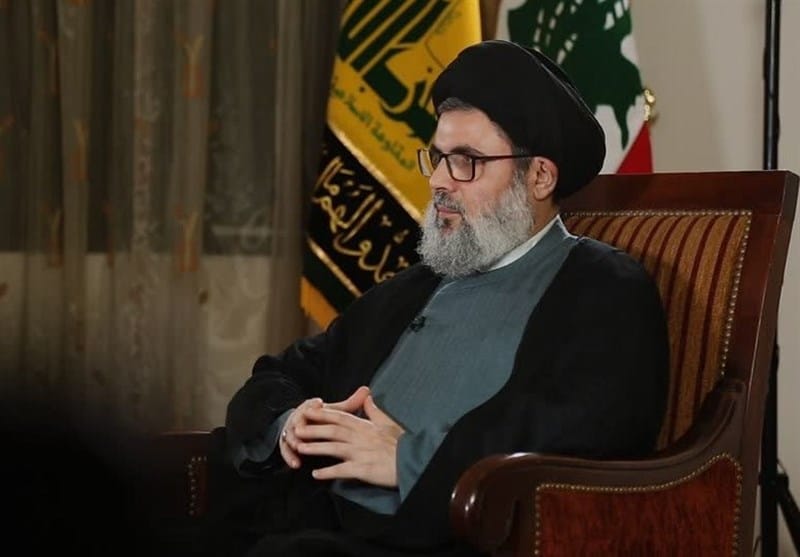Life Of Martyr Hashim Safieddin.
Seyyed Hashem Safieddin, one of the political leaders of the Lebanese Hezbollah movement, was born in 1964 in the city of Deir Qanun al-Nahar in the south of Lebanon to a prominent Shiite family. He is the cousin of Seyed Hassan Nasrallah, the general secretary of Hezbollah.
Besides the kinship relationship, Hashim Safiuddin’s and Martyr Seyed Hassan Nasrallah’s similarity in appearance, voice, and even tone attract attention.
Safi al-Din family is famous in the political and religious fields, and Shia scholars and prominent Shia politicians in Lebanon often come from this family, the most important of which is Mohammad Safi al-Din, a member of the Lebanese Parliament in the 1960s and 1970s.
In the 1980s, Seyyed Hashim Safiuddin studied with Martyr Seyed Hassan Nasrallah in Shia seminaries in Iraq and Iran, joined Hezbollah from the beginning, and held high-ranking positions in the Lebanese resistance.
In 1983, he married the daughter of Mohammad Ali Al-Amin, a member of the Legislative Council of the Lebanese Shia Islamic Council.
In 1994, the Hezbollah movement asked Seyyed Hashem Safiuddin to finish his activities in the seminary of Qom and return to this country to assume important responsibilities in the Lebanese resistance.
After returning from Qom, he assumed the head of Hezbollah’s executive council, considered the highest post of Hezbollah after the general secretary. Hashim Safiuddin became responsible for the implementation of internal policies and the development of Hizbollah’s administrative structure and supervision of domestic and foreign institutions, property, and investments, especially in the Arab world.
Seyyed Hashem Safieddin is the second man of Hezbollah after Sayyed Hassan Nasrallah and among the senior officials of the Lebanese resistance, who in addition to his political responsibility also works in its military branch.
In 2017, the United States put Seyed Hashem Safiuddin on the so-called list of those accused of terrorism, and in 2018, it imposed numerous economic sanctions, including the confiscation of property and accounts and the prevention of financial transactions with him.

